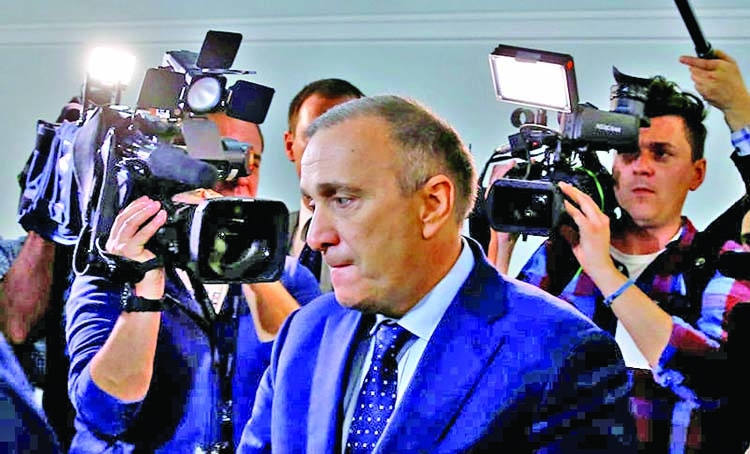Polish opposition kicks off election campaign

Poland's biggest opposition front launched its campaign for next month's European Parliament election on Saturday by warning that the ruling eurosceptic PiS party could eventually lead the country out of the EU.Poles overwhelming support remaining in the bloc, and the Law and Justice party (PiS) has never called for Poland to leave. But opposition leaders say the party's fierce anti-EU rhetoric and a series of disputes with Brussels bring "Polexit" a step nearer.
Seeking to appeal to voters' pro-European sentiment, leaders of the opposition European Coalition (KE) said May's European election poses a stark choice about the nation's future."There's a great choice ahead: either strong, rich, democratic Poland in a strong Europe, or what we see today party state, on its way to leave the EU," said Grzegorz Schetyna, head of the centrist Civic Platform (PO)., which is part of the multi-party KE grouping.
"We're facing elections to the European Parliament that are the most important elections since 1989. Now even more is at stake," he told a KE convention on Saturday, referring to the election 30 years ago that marked the return of democracy.
If Poland was to hold a referendum similar to Britain's Brexit ballot, 88 percent of Poles would vote against leaving the bloc, according to an opinion poll published this month by IBSP. A voter survey by the IBRiS pollsters gave PiS support of 39 percent in the European elections, ahead of the KE on 36.5 percent.
The ruling party, which has governed Poland since 2015, has retained solid support among voters despite a series of corruption scandals and opposition criticism that its legal and media reforms are a thinly veiled power grab. Much of the party's appeal among lower-income Poles is linked to targeted welfare spending, political analysts say.
At Saturday's campaign launch, Schetyna promised pay raises for teachers and extra financial support for young workers. He pledged to spend billions on an anti-cancer program, to reinstate funding for in vitro fertilization (IVF) treatment among tens of thousands of infertile couples, and improve air quality by stopping the use of coal for household heating.
